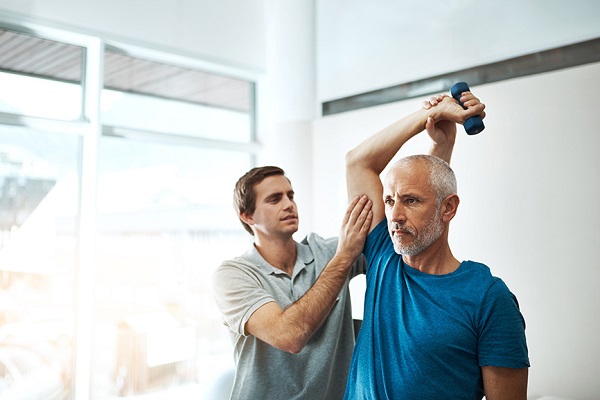
- Losing excess weight: For every 50 pounds of body weight, we put 250 pounds per square inch of pressure on each knee. If you have knee pain, shedding the extra pounds gain is sometimes a game-changer.
- Doing specific exercises recommended by a physician or physical therapist that strengthen the muscles around the joint
- Trying low impact activities that cause less discomfort and exert less pressure on the joint, such as doubles tennis vs. singles, and swimming or bicycling vs. jogging.
- Taking an NSAID before or after exercise, or as needed for pain
- Taking a prescribed drug in the COX-2 inhibitor class, such as Celebrex.
- Eating a diet rich in anti-inflammatory foods like fish, leafy greens and green tea
- Taking a glucosamine and chondroitin supplement
Minor Knee Pain Treatments You Can Do at Home
In cases where the knee pain has come on gradually or stems from an activity that is likely to have strained it, the injury may be minor and resolves from measure you can take at home. These include:
- Ice: Apply an ice pack 15-20 minutes a few times daily
- Rest: Avoid putting pressure on the joint or engaging in activities that increase the pain or tenderness
- Elevate: To reduce swelling and promote healing, elevate the knee above your heart as often as possible during the day and during sleeping hours
- Try compression: If ice and elevation are insufficient, you can buy a compression band to place around the knee, alleviating the build-up of fluids around the joint
- NSAIDs: Your doctor may suggest a trial of non-steroidal anti-inflammatory drugs (e.g., Aleve, Advil and Motrin) or acetaminophen (Tylenol) to reduce pain and swelling.
Benefits of Early Diagnosis and Treatment
Staying active is one of the top predictors of a long life. With today’s medical know-how and advances, for the vast majority of people, there is no reason to let knee pain be life-limiting. The sooner you get your knee pain evaluated, the more options you will have to treat it. “A patient’s symptoms drive our entire process at the Joint Center,” Dr. Kendrick says, “from tips about joint health to conservative treatments, such as the use of a walker, to joint replacement surgery. Our goal is always to return the patient to a pain-free lifestyle.”
Keeping Joints Healthy Through Diet and Exercise
“It’s never too early – or too late – to think about bone and joint health,” says orthopedic surgeon James Kendrick II, MD, who is affiliated with Memorial Hermann Greater Heights Hospital and director of its Joint Center. “Healthy joints enable us to walk, run, play sports and live a pain-free lifestyle.”
Dr. Kendrick offers several recommendations for bone and joint health and emphasizes the importance of a balanced diet. “For example, eating fish will help reduce inflammation,” he explains. “For bone health, eat foods rich with calcium and Vitamin D, such as dairy products, green leafy vegetables and yogurt. Being Vitamin D deficient can have a negative effect on building strong bones.
“The goal is to stay active at any age,” Dr. Kendrick says. “As we get older, we lose bone, but strengthening exercises can help slow the process. Exercise is good for our overall health and is especially important in the aging population because it is good for our balance, our hearts and bone density.”
If joint pain is limiting your exercise routine, it may be time to do something about it.
Find Relief from Joint Pain
Each year, Memorial Hermann Joint Center physicians perform more than 3,000 hip and knee joint replacement procedures, more than are performed at any other hospital system in the Greater Houston area.
If you're experiencing symptoms of knee pain and are seeking relief, Memorial Hermann Joint Centers can help. Our orthopedists see patients with everything from minor knee pain that requires rest and self-care, to those with chronic, serious knee pain, requiring a targeting non-surgical or surgical treatment plan. Find a location near you.
Let's get started.
Contact us to learn more about Memorial Hermann Joint Centers and pain-relief solutions. Submit the form below and the Memorial Hermann Joint Center navigator will reach out to answer your questions and help guide you down the path to a life with less pain.